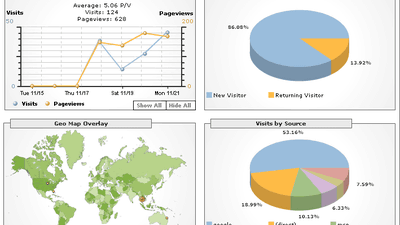Fitbit's health advice function created with Google's AI 'Gemini' will be released in the second half of 2024, making it possible to suggest health menus through natural conversation

Google has announced that it will add a health advice function based on Gemini, Google's generated AI, to the mobile app of Google's wearable device maker Fitbit.
Google shares 4 updates on generative AI in healthcare
3 ways Google is integrating equity health into AI
https://blog.google/technology/health/google-ai-health-equity/
Fitbit Labs, powered by new Personal Health LLM, coming this year
https://9to5google.com/2024/03/19/fitbit-labs-personal-health-llm/
Fitbit Using Google Gemini for New AI That Could Become Your Fitness Coach | PCMag
https://www.pcmag.com/news/fitbit-using-google-gemini-for-new-ai-that-could-become-your-fitness-coach
Google announced 'Personal Health LLM', a large-scale language model (LLM) for Fitbit based on Gemini, at the event The Check Up with Google Health on March 19, 2024.
This AI feature is a chatbot that generates actionable messages and guidance from your data, allowing you to ask questions about your Fitbit data in a natural conversational manner. The generated advice can be customized by users based on their health data and target amount of exercise; one example of how this can be used is to ``suggest an exercise menu based on how much sleep you got last night.''

'This model is designed to deliver personalized coaching features, including actionable messages and guidance that can be customized based on an individual's health and fitness goals,' said Yossi Mathias, vice president of engineering and research at Google. 'For example, this model could analyze changes in sleep patterns and sleep quality and make recommendations on how to change the intensity of your workouts based on those insights.'
This feature will be provided through the Fitbit app ``Fitbit Labs'' that can be used by paid users who have subscribed to Fitbit Premium, and the service is scheduled to start in the second half of 2024.
According to Google, the Gemini model, which is tailored for medical use like the one announced this time, was benchmarked using the United States Medical Licensing Examination (USMLE) and tested on the video dataset ``MedVidQA'' that includes medical question and answers. It is said that it showed a high performance of 91.1%.
During the announcement event, Karen DeSalvo, Google's chief health officer, said, ``Doctors who don't use AI will be replaced by doctors who use AI.''

In developing medical AI, Google places particular emphasis on racial and gender equity. In a paper posted on the preprint server arXiv on March 18, 2024, Google includes a methodology for humans to evaluate the bias generated by LLM and seven adversarial test datasets for detecting bias. We announced 'EquityMedQA'.
Additionally, we have developed the Health Equity Assessment of Machine Learning performance (HEAL), a framework aimed at preventing the introduction of AI models that could worsen inequality, and an image dataset that supports different skin tones. We are also focusing on the development of the Skin Condition Image Network (SCIN) .
'We are in the early stages of this work, but we are committed to making a difference,' Ivor Horn, Google Health's chief health equity officer, said in a statement. We believe that sharing what we have learned will help build a healthier future for everyone, regardless of their origins or where they live.'
Related Posts:
in Software, Posted by log1l_ks






